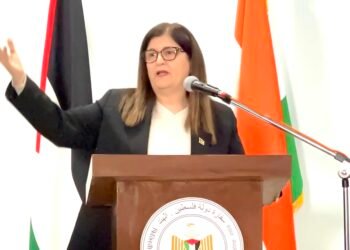NEW DELHI: In a major diplomatic shift, India has announced plans to reopen its embassy in Kabul, signaling a cautious yet calculated re-engagement with Afghanistan’s Taliban administration. The decision, unveiled during talks between External Affairs Minister Dr. S. Jaishankar and Afghan Foreign Minister Mawlawi Amir Khan Muttaqi in New Delhi, marks the first high-level interaction between the two governments since the Taliban seized power in August 2021.
Muttaqi, who is visiting India on a six-day official trip after receiving a temporary exemption from the UN travel ban, emphasized that Afghanistan seeks “positive and balanced relations with all countries, guided by Islamic principles.” He noted that “India has a good opportunity to engage on this positive trajectory,” and expressed hope that “a balanced policy will encourage others, too.”
At the same time, the Afghan foreign minister firmly ruled out the presence of any foreign military forces on Afghan soil, underscoring Kabul’s commitment to sovereignty and non-interference. He assured that Afghanistan would not allow its territory to be used for hostile activities against other nations, signaling an attempt by the Taliban to project responsibility in regional security affairs.
Dr. Jaishankar, reaffirming India’s long-standing support for Afghanistan’s independence and territorial integrity, said closer cooperation would contribute to the country’s development and regional stability. He announced that India’s technical mission in Kabul would be upgraded to a full-fledged embassy, though without a specified timeline. The move, he said, represents the natural progression of India’s constructive engagement.

The decision reflects New Delhi’s evolving regional strategy, shaped by its tense relations with Pakistan and concerns over China’s expanding influence in Afghanistan. Around a dozen countries including China, Russia, Iran, Pakistan, and Turkey maintain embassies in Kabul, though only Russia has formally recognized the Taliban administration. India’s presence will restore a degree of diplomatic balance and prevent the vacuum that could otherwise strengthen rival influence.
For Afghanistan, India’s return carries both symbolic and practical weight. It signals an opportunity for renewed development partnerships and international legitimacy at a time when the Taliban government remains largely isolated and under sanctions. Muttaqi’s visit underscores the Taliban’s growing outreach to regional powers as part of a broader effort to secure economic cooperation, trade, and political acceptance.
India’s engagement, however, remains carefully hedged. While reaffirming humanitarian aid and reconstruction efforts, New Delhi has made it clear that dialogue does not equate to recognition. Over the years, India has invested more than $3 billion in Afghan infrastructure and social projects including the Salma Dam, Zaranj-Delaram Highway, and the Afghan Parliament Building and maintaining a diplomatic footprint ensures continuity in these long-term commitments.
Muttaqi’s assurances that Afghanistan will not serve as a springboard for terrorism align with India’s core security concerns. The Taliban’s promise to prevent the use of Afghan territory for cross-border attacks is being watched closely, especially given the rise of extremist activity along the Afghanistan–Pakistan frontier.
The renewed contact between New Delhi and Kabul represents a pragmatic middle ground engagement without endorsement. It acknowledges the ground reality of the Taliban’s control while preserving India’s influence and capacity to act in the region’s evolving power dynamics.
As global powers reassess their strategies toward Afghanistan, India’s decision reflects the understanding that isolation is no longer sustainable. Reopening the embassy is not just a diplomatic gesture but a strategic necessity one that allows India to protect its interests, sustain development ties, and remain an active voice in shaping Afghanistan’s future.
For both nations, this marks the beginning of a new phase cautious, transactional, and rooted in mutual interest. Whether it leads to stability will depend on Kabul’s willingness to deliver on its promises and New Delhi’s ability to balance ideals with pragmatism in a region where engagement is now the new language of influence.
– Dr. M Shahid Siddiqui | WNN I Follow via X @shahidsiddiqui
WATCH, LIKE and SUBSCRIBE CHANNEL FOR GLOBAL NEWS

















